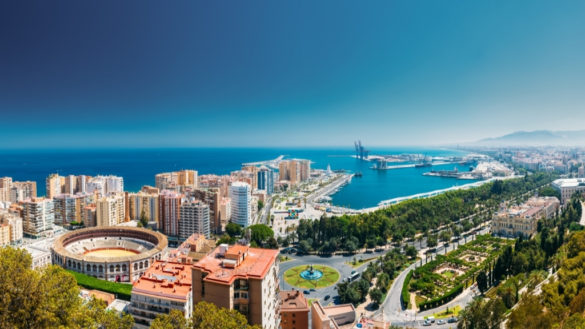Moving to Spain: A Simple but Vital Checklist To Relieve Stress
.

Before setting out on a journey the normal procedure would be to make a check list of what you need, legal documents like passports or identity cards, clothing, medication and personal belongings
Well moving to Spain is no different, however if this is a permanent move it is vital you have everything in place. Here are a few tips and guidance to make the move comfortable and trouble free.
1. Simple Checklist For Moving To Spain
Finances, are you able to support yourself and your family once you move? Many people find local work, but if this is the case you must have savings, work is not easy to find once you move to another country, unless you have a contact and a job waiting for you. Be prepared to support yourself until you settle in.
Working remotely – this is another very popular option, if you already have your business in place and can work from your new home office this will be an easy process. Be sure you have good internet access where you are going to live.
Study, learn about Spain, the culture and the history, this helps you to integrate into your new home. Study the language the moment you arrive, or take a course before you leave. Integration into your new home life will be much easier if you can communicate, even if it’s basic language skills, further knowledge will improve with time.
Residence – Do you have the correct documents in place to move to Spain and reside here? This is something that is difficult to sort out once you have moved in your new home. Find out your rights and legal requirements before you set foot outside the front door.
Medical services, find out if you are entitled to nation health medical services and if you have a family, ideally take out a family private medical insurance, there are many offers for the whole family. If you are entitled to Spanish national health services when you move to spain you can register when you arrive at your local health centre, you will need identification and a copy of your local town hall electoral roll application (Empadronamiento) this is to prove you are registered as a citizen in that town.
Property Search – renting a property could be a a good possibility if you are moving permanently to Spain. This gives you time to find out which area really suits you, the local amenities and infrastructure that meets you and your family´s needs. However, if you have time to visit spain before moving and to explore the areas then buying a property may be the best option for you.
Finding your home – Choosing a home is a personal choice and there are many options in Spain, country property, townhouses, apartments, penthouses and villas. If you are moving with children, it is wise to think about travel, you will need to travel to school with your children and sports activities are very popular, so travelling should also be taken into account. If you are looking to buy a home in spain check out our latest properties here.
2. Other Things to Consider When Moving To Spain
Do you have a disability. If so you must bring your paperwork with you when you move to Spain. If you want to apply in Spain for disability allowance you can make an appointment at the local health centre with the Social Services department. They will then study your paper work and arrange an appointment in the nearest city Disability & Special needs department. They will then assess you and contact you. If you are entitled to a small pension this would be paid monthly, as long as you are not working.
Pets – Transporting your pets to Spain is not a difficult process. Ask your local vet for information on inoculations and paperwork. You can also look on websites to find out exactly what you need and contact transport companies if you have horses. Usually the transport companies know what is required, but this must be done correctly before you leave and arrive in Spain.
Education- Families with children must take into account that this is a very big upheaval for children moving to a new country, they will be leaving their family and friends behind, so the ideal way to get around this is to make sure that your children join clubs and after school activities, they will meet like- minded children who have also most probably moved to Spain.
Schools & Universities – most children enjoy the interaction of mixed cultures, this helps them to grow up in a cosmopolitan atmosphere and teaches them that all nationalities are equal. Many parents chose local Spanish schools for the younger children, moving on to an international school at the age of around 11 or 12. This integrates them into the system and country. A private education is also an option.
Most internationals schools will teach the Spanish system ESO and Bachelorato including the GCSE and A´ levels British curriculum. They are then able to apply to a Spanish university or in another country. Always speak to the director of the school before making your decision.